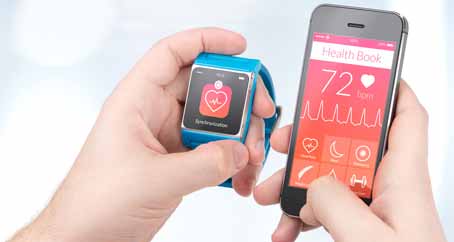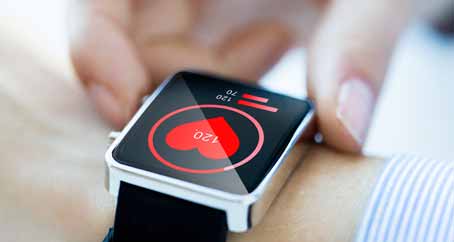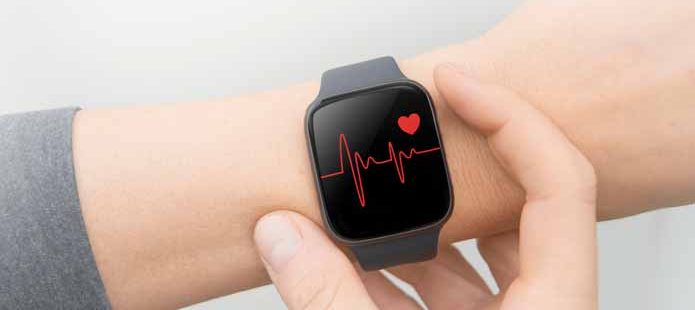Smartwatches can be a perfect tool for tracking heart health. Most common smart watchers on the market offer a heart rate monitoring feature, which fitness enthusiasts mainly use to track their level of activity during or after a workout. The monitoring of the cardiac rate is an excellent way of measuring your own metabolism and comparing your exercise rate with the other age groups, providing you with a perfect measure of your heart ‘s health. Heart rate monitoring can be an enjoyable metric to follow, but also one of the key instruments of the cardiologist for determining whether your health is working correctly.
What Your Pulse Says of Your Health?

monitors the flow of blood to the radial artery, or with a hand pressed against the neck that checks the carotid artery. Medical professionals also use an Electrocardiogram ( ECG / EKG) to interpret the heartbeat of a patient.
How Smartwatches Detect Heart Rate
Smartwatch follow the heart rate in the same way as the pulse regulation, without physical pressure. Popular smartwatches use heartbeat photo plethysmography. This is the way a green light is projected onto the skin, absorbed by the blood. More green light reflected is associated with lower blood flow, suggesting that the heart is intermediate.
Will Smartwatch Detect Afib?
Though smartwatches are not as complicated as an EKG, recent studies have shown that they can detect one of the same health problems as an EKG. Heartbeat is an abnormal disorder known as afib, which can precede significant cardiac events and stroke. Testing afib is a basic yet necessary treatment for older adults and if you have any symptoms including cardiac palpitation, shortness of breath and chest pain, it is important to contact the doctor.
Do Not Use A Smartwatch As A Substitute
There is anecdotal proof that smartwatches save lives, but without the work of medical professionals they are worthless. Smartwatches are an effective way of tracking the heart rate and taking an active measure to consider heart health, but they are not medical devices. Smartwatches may detect afib but they are not infallible and should not replace a qualified cardiologist ‘s advice.
If you have painful symptoms such as fatigue, decreased fitness skills, tiredness, lightheadedness, shortness of breath, or chest pain, a medical professionals must talk with you, regardless of whether you have a smartwatch. Afib can be managed with countless invasive and noninvasive procedures. Blood thinner is an easy and safe option for many patients. However, consulting a cardiologist at an early stage is crucial.
What Are The Dangers Of A Smartwatch For Afib Detection?

Two major risks are to rely on wearables to warn you of possible health problems. The first one is incorrect. People could spend time and money seeking a reply only to find it incorrect. On the other hand, you probably would not seek an opinion from a medical provider if you rely on the wearable to diagnose a disease and never get a warning for it. These watches are capable of offering a false sense of security if they do not take up the indications of an established situation.
- 5 Reasons to Try ProHydrolase for Digestive Health - June 20, 2024
- SMS Verification: A Comprehensive Overview - June 10, 2024
- 4 Effective Ways to Manage Erectile Dysfunction - June 3, 2024

